Mainers of the Year 2022
The leaders who have shaped the state over the past year.

Mainers of the Year 2022
The leaders who have shaped the state over the past year.
By Rachel Hurn and Hadley Gibson
Photography by Coco McCracken, Ben Macri, Heidi Kirn, Dave Dostie, Nicole Wolf, Andy Gagne, and Ek Han Tan
Issue: October 2022
Outdoor Recreation
Art + Culture
Community + Public Service
Environment + Science
Outdoor Recreation
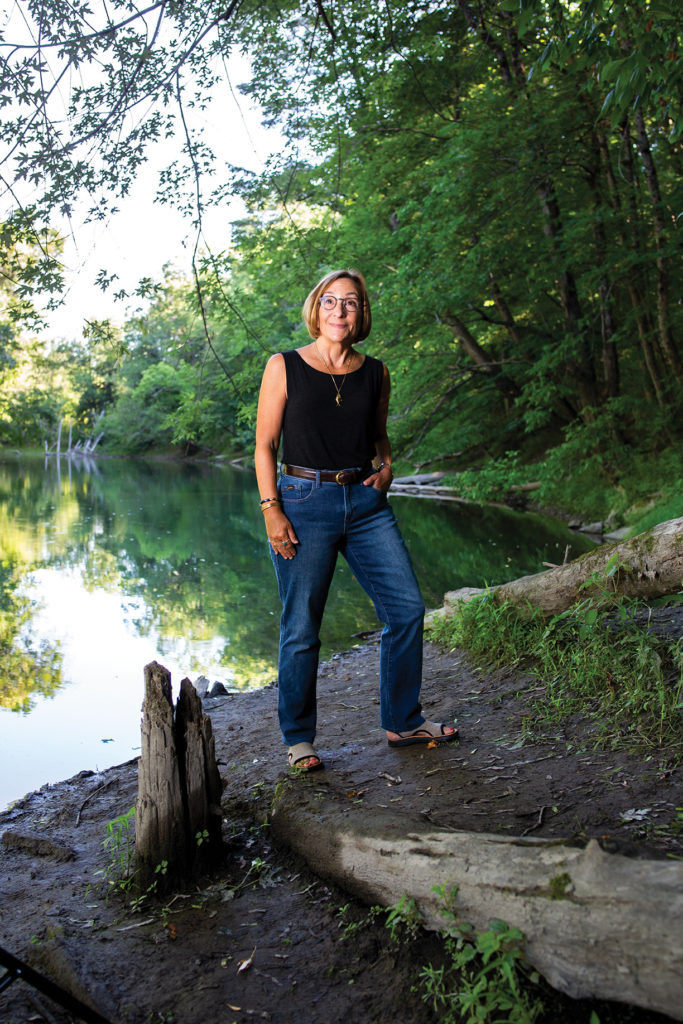
Nan Cumming
Executive Director, Portland Parks Conservancy
After many years working in local nonprofit administration, in 2018 Nan Cumming, former executive director of Portland Trails and then director of institutional advancement at the Maine Historical Society, joined land advocate Lucas St. Clair and a board of trustees to found the Portland Parks Conservancy. The mission of the conservancy is to enhance Portland’s parks and recreational programs by raising philanthropic capital and guiding community engagement efforts. One of the group’s most exciting accomplishments happened this past year, when they planned, approved, and funded advancements to Riverton Trolley Park. The park’s land has a rich history: it was a fishing area for Maine’s Wabanaki tribe, the site of an early corn canning factory, and a Victorian amusement park at the end of the trolley line from downtown Portland. While the land on the Presumpscot River has been a public park since 1947, it is woefully underused today. “That’s especially unfortunate because the Riverton neighborhood is one of Portland’s fastest growing and lowest income areas,” says Cumming. “It is also remarkably diverse: the students at the local Gerald E. Talbot Community School speak at least 11 different languages. Those families need a local park that meets their needs.” This past year the Portland Parks Conservancy began working with the community to create a Riverton Trolley Park improvement plan, which includes wayfinding and interpretive signage, improved accessibility, new plantings to attract pollinators, a covered picnic pavilion, and Portland’s first mountain bike flow trail. With initial approval from the federal Land and Water Conservation Fund, the Parks Conservancy expects the city to be able to break ground this fall. “I’ve loved this park since my days at Port-land Trails and the Maine Historical Society,” says Cumming. “It’s exciting to be able to help realize its potential!”

Enock Glidden
Outdoor Advocate for Disabled Adventurers
Enock Glidden, who was born with spina bifida, describes himself as a professional adventurer. His ambitious outdoor pursuits have made him an activist and advocate for better accessibility in the outdoors. He travels around the country as a speaker and advocate for adaptive athletes, but his latest project has kept him much closer to home. Beginning in 2021 Glidden has been working with Maine Trail Finder, an online resource, to assess the accessibility of trails around the state. “Some of my proudest moments of this year are the many times people have told me that they have been able to get out with an elderly parent or a child because they found my blog on Maine Trail Finder,” says Glidden. “It makes me tear up just thinking about it. I think that is the meaning of life, to help others and leave your best influence on others’ lives, to make theirs better.” Glidden also worked with the Spina Bifida Association of Greater New England to take kids and adults with spina bifida on an accessible hike at Wolfe’s Neck Woods State Park. “Seeing the kids enjoying the outdoors and taking a couple of them on a not-so-accessible trail was an amazing experience. I got to show them that they can access the world if they truly want to.” Glidden says his biggest challenge is getting the word out about Maine Trail Finder and encouraging more interest in trail accessibility in general. “I am only one person, and Maine is a huge state. I can only cover so much ground in a season,” says Glidden. “Things are catching on, though, and I am working with other organizations to get more exposure to this amazing place we live in.”

Adam Shepherd
Executive Director, Rippleffect
When executive director of youth and community development nonprofit Rippleffect Adam Shepherd found himself navigating the rough waters of the pandemic, he encouraged Rippleffect’s program team and guides to approach each day and each challenge by asking themselves what they could do to continue addressing the needs of the community, as opposed to focusing on the many ways that they could not. “This line of thinking inspired our team to create and implement new programs that worked within the many constraints of COVID guidelines,” says Shepherd. During a time when quarantine and remote learning closed children off from their peers and communities, Rippleffect’s mission of reconnecting kids through the great outdoors at little to no cost became even more important and urgent for Shepherd. With this mentality at the forefront, the Rippleffect team developed the Rippleffect Adventure Academy, which was specifically designed for middle-school-age students in hybrid learning structures and involved organizing outdoor excursions for students with access to internet hot spots so that they could log in to class whenever they needed. They also started the Rippleffect Outdoor Afterschool Program, which started in the fall of 2021 and focused on getting students at the Reiche, Longfellow, and Ocean Avenue elementary schools in Portland outside in parks, on trails, or at the beach for at least two hours each day, regardless of the weather. Inspired by the many partnerships created with the Portland school systems throughout the pandemic, in January of 2022 Rippleffect partnered with the City of Portland and Portland Public Schools to begin developing the Rippleffect Outdoor Center (ROC) on the property adjacent to Amanda C. Rowe Elementary. Consisting of two yurts that will serve as environmental and outdoor skill classroom spaces, over 20 high- and 10 low-ropes challenge courses, and a four-sided alpine rock climbing tower, the goal of the ROC is to become an outdoor community space that will provide year-round, equitable access to outdoor programming to all Portland schools, youth, and their families.

Rachelle Curran Apse
Executive Director, Presumpscot Regional Land Trust
Growing up in Gorham, Rachelle Curran Apse spent a large chunk of her youth running almost daily on the informal forested trails of her hometown. This helped to spark a lifelong appreciation and curiosity for the great outdoors, which led her to study environmental science in college, work in outdoor and environmental nonprofits for 15 years, and in 2015 brought her back to the start when she accepted the role of executive director of the Presumpscot Regional Land Trust, which serves the towns between Portland and Sebago Lake, including Gorham. In the time Apse was away, Gorham had nearly doubled in size, and many of her childhood trails were filled in with subdivisions because the land had not been conserved. Since taking the helm of the PRLT, Apse has made it a priority to provide access to the outdoors and opportunities to connect with nature by ensuring that, as development continues, significant conservation and trail projects are also in place to benefit future generations. “Our impact results in an improved quality of life in Greater Portland, with access to the outdoors and nature close to home for the quarter of a million people living here,” says Apse. In the past year Apse and her team have worked with the town of Windham to create the East Windham Conservation Project, a conservation and outdoor recreation space the size of Bradbury Mountain State Park, which Apse estimates to be the last large area of undeveloped land within a dozen miles of Portland. Looking to provide a welcoming outdoor experience for all, throughout the pandemic Apse also led the PRLT to create scavenger hunts, gnome and fairy villages, and guided story walks on family-friendly trails; to build six miles of walking trails through Mill Brook in Westbrook, where visitors can observe the yearly migration of fish from the ocean to Highland Lake through the Presumpscot River; and to create a one-mile universal access trail (which includes strollers and wheelchairs) that leads to a scenic pond and a sweeping overlook of the White Mountains. Apse’s goal moving forward is to nurture those relationships. “I look forward to building the partnerships we have and growing new collaborations to increase access to the outdoors and nature for all.”
Art + Culture

Katherine Bradford
Artist
Katherine Bradford’s new exhibition, Flying Woman: The Paintings of Katherine Bradford, opened at the Portland Museum of Art this past June, the 80-year-old artist’s first museum survey. Demand for Bradford’s color-saturated canvases—thought-provoking paintings that explore her biography as an artist, woman, mother, and lesbian—has continued to grow over the past 20 years, as has her list of accomplishments. In 2021 Bradford received the Rappaport Prize from deCordova Sculpture Park and Museum in Massachusetts; she also has been awarded a Guggenheim fellowship as well as awards from the Joan Mitchell Foundation, the American Academy of Arts and Letters, and the Pollock-Krasner Foundation. Last year New York City’s MTA Arts and Design commissioned Bradford to create glass mosaic murals for the L train’s First Avenue station in Williamsburg (arguably one of the hippest subway stops in the city). And in March of this year, Bradford’s top auction record was set when her acrylic-on-canvas work Couples Swimming (2015) sold for $50,400. In response to all this acclaim, Bradford says, “In light of all the skepticism from my family about me becoming an artist, I have to say it’s been a remarkable moment to feel the acceptance and admiration from the people closest to me, and in particular my children.” Bradford’s story has resonated strongly with older women, who, she says, like her, “have had to navigate marriage, perhaps divorce, and raising children in order to become the artists they want to be. I hear from these women often, and remind myself that I’ve had the great good fortune to be surrounded by a lively group of Maine artists right from the beginning; even before I dared call myself an artist, these artists were there as examples and inspiration.” Bradford’s advice for aspiring artists? “Get used to thanking the people who have helped you. After a while you can talk a little bit about your own work, but it’s best to keep the conversation going in the direction of other people.”

Muhammad Drammeh
Student and Writer
At just 17 years old, Muhammad Drammeh, an aspiring writer and a student at Bangor High School, won this year’s Maine Writers and Publishers Alliance annual CrimeFlash fiction contest with his story “Doghouse.” Not only did Drammeh beat out more than 50 entrants, some of them published authors, but he is also the first teen to win an MWPA award in a competition against adults. “The fact that I was able to get the story published in the Portland Press Herald has given me a platform,” he says, “one I want to continue to use to speak on issues I find to be important, relevant, and interesting.” Drammeh expresses frustration at not being able to directly affect core societal issues like racism and inequality, but says that writing feels like a step in the right direction: “I want to push the limits of storytelling and use it as a platform to change people’s minds.” Besides being published, one of his proudest achievements is getting the Creative Writing Club off the ground at Bangor High. His hope is that, even after his own graduation, it will continue to allow other people who consider themselves novices in the field to learn and grow, and to create a support network. When asked about the impacts of his personal achievements, Drammeh pointed to his local Gambian community. “The deepest impact was the excitement of other Gambians due to a member of their community reaching some success.”
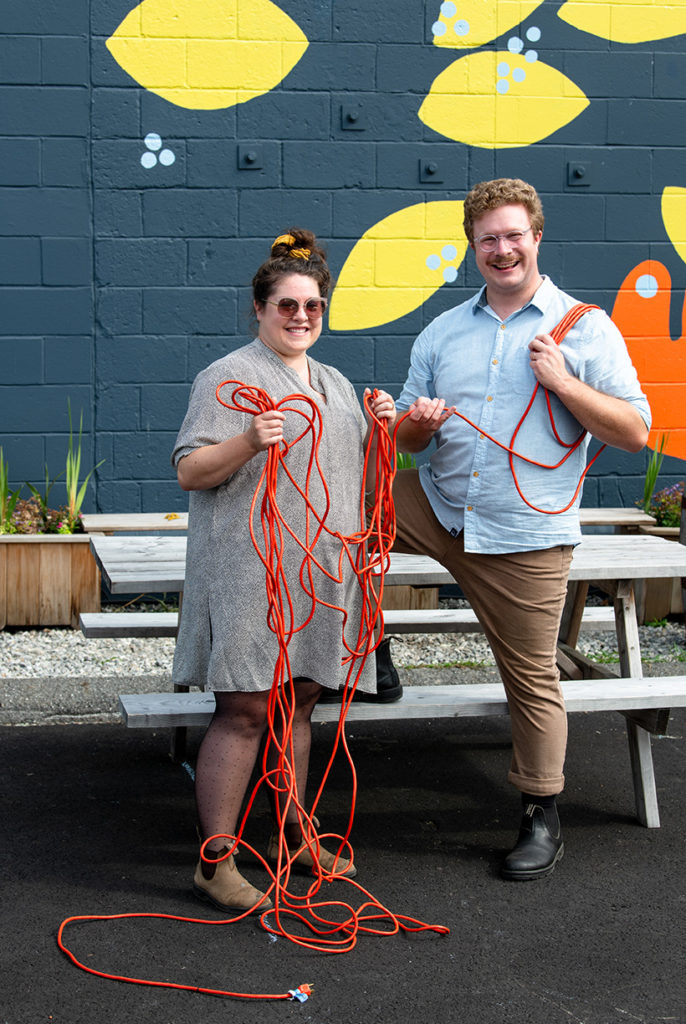
Mackenzie O’Connor + James Patefield
Performance Artists and Organizers
This year PortFringe, a celebration of experimental, scrappy, and original art run entirely by volunteers, both celebrated its tenth anniversary and switched to a new location in Portland’s hip East Bayside neighborhood. Mackenzie O’Connor and James Patefield, the festival’s lead organizers, called the new spot “a perfect fit,” as the district boasts an appreciation for art in everyday spaces, a willingness to try something new, and a collaborative spirit. “Seeing how badly Maine’s performance communities were hurting,” says Patefield, “we knew this year’s festival had to be a little different. Artists needed encouragement to get back out there, and we wanted to provide a safe space for them to rip that Band-Aid off.” For one week, audience members could find a variety of genre-defying performances in comedy, dance, sketch, puppetry, film, and more in surprising and delightful locations like a brewery, a back alley, and even a yarn shop. “One of our proudest accomplishments was that we helped revitalize this necessary community in the Portland art scene,” says Patefield, who explains that this year’s PortFringe was open solely to Maine-based artists. “What we think of as traditional art forms are naturally expanding and bumping into each other, and are being absorbed into new creative projects that don’t fit into our traditional boxes anymore. Art should be for everyone, it should be accessible, and it should live everywhere.” The pandemic gave the couple, who are artists themselves, an opportunity to explore furthering their careers in ways that inform their art. O’Connor is pursuing a seminary degree to become a chaplain and dive into the connections among ritual, performance, and end-of-life care, while Patefield is investing in another community-focused organization as the board president of Speak About It, a Portland-based consent education nonprofit. Next year, they’ll take a break from PortFringe to focus on solo artistic pursuits as well as perhaps their biggest creative endeavor yet: they’re expecting their first child in February.

The Ghost of Paul Revere
American Folk Band
After 11 years of making music and touring the country and the world, the Ghost of Paul Revere announced in April that the band would be breaking up after its summer tour. The Maine-based folk band, which got its start singing in Portland bars, said that the decision was made “for the sake of our own health, our families, and you, our fans.” Three of the four band members, Griffin Sherry, Sean McCarthy, and Max Davis, grew up together and graduated from Bonny Eagle High School in Standish. Charles Gagne joined in 2018 as the band’s drummer. “We have had the chance to play some of the most incredible stages in the country,” says Sherry, “which this year included both Red Rocks Amphitheatre in Colorado and the historic Fillmore West in San Francisco.” At the National Governors Association 2022 Summer Meeting, Governor Janet Mills showcased the band’s song “Ballad of the 20th Maine,” which became the official state ballad in 2019 when it was passed into law unanimously by the State House and Senate, an honor shared by only a few other songwriters in history. This year will mark the fifth Ghostland Music Festival and, for the foreseeable future, the Ghost of Paul Revere’s last performance. “We started the festival in 2014 in Brunswick with a lot of hope and just enough money to pay for the costs of the event,” says Sherry, who goes on to describe how the band members parked cars, set up porta-potties, and cooked meals for the friends and musicians who came to play. The event has grown from a few hundred people to over 4,000, and now it is held at Thompson’s Point. “I believe we are the biggest independent band in Maine’s history,” says Sherry, “which is a testament to the incredible people of this state who have supported a couple of friends from Buxton through thick and thin. They always showed up, they always gave us the strength to keep going even in the most dire times, and I will always love them for that and could never thank them enough in a single lifetime for what they gave us.”

Adilah Muhammad
Executive Director, The Third Place
Since moving to Maine, Adilah Muhammad has seen several individuals from the BIPOC community relocate to the state for work opportunities, only to leave within two to three years. “My personal and professional network was like a revolving door,” she says. “When folks left, they never cited lack of economic opportunity as a barrier; it was lack of cultural and community opportunities.” In order to combat what Muhammad describes as a shortage of “Black cultural infrastructure,” she started The Third Place, a nonprofit working to build a statewide ecosystem to ensure that BIPOC Mainers experience a quality of place that considers their needs through mentorship, social and professional networking, advocacy work training, and cultivating opportunities to source products and services from within the BIPOC community. Over the past year, Muhammad’s team has grown from a network of just over 325 people to one serving over 550. And in July, The Third Place held the inaugural Maine Black Excellence Awards, a pivotal moment in its community development. “It was the first time individuals who have been working tirelessly on behalf of BIPOC communities have been recognized by the community itself,” says Muhammad. “It is not typical for Black professionals in Maine to be in spaces that are both professionally and socially affirming. We’ve filled a gap that was desperately missing in the equation of making Maine the way life should be for Black and Brown communities.”

Kal Sugatski
Artistic Director, Vigorous Tenderness
During the darkest days of the pandemic, the Portland-raised violist Kal Sugatski (they/them) started Vigorous Tenderness, an outdoor, socially distanced, classical and experimental concert series, as a way to bring musicians and Mainers back together. Since its inception, 5,500 Mainers have attended concerts connected with the repertory, which have taken place in state parks, beaches, local farms, and other public spaces; Vigorous Tenderness has employed more than 50 Maine-based musicians; and the rep has commissioned and programmed more than 40 new works by composers of color, queer composers, and other marginalized voices in classical music. Sugatski, who trained under Julia Adams and the other founding members of the Portland String Quartet, and who has gone on to perform with the New York City Ballet, the New York City Opera, and every major New Music ensemble in the city, as well as joining the section of the Pittsburgh Symphony for their 2021-2022 season, says the pandemic gave them artistic space to realize a dream: to create a more equitable environment for classical music. Sugatski believes that visibility is a very powerful form of activism. “Classical music is better when more voices are heard. Art is more powerful when it is relevant to the community. Queer composers, composers of color, women composers, gender expansive composers bring so much depth, vitality, and perspective to classical music. The future of classical music (and the success of classical music) must be democratized and equitable.”
Business

Suzi Pond
Founder, Redbird Media Group
Suzi Pond is the founder of Redbird Media Group, a small media production company dedicated to telling the stories of certified B Corporations working toward the common good. Pond, who describes herself as a “once geeky Gen X kid with lots of time and a mid-’80s Macintosh to master,” coded her way through the early digital storytelling landscape and fell in love with the power of the human voice. “I became interested in the B Corp movement after meeting Margo Walsh of Maine Works nearly a decade ago,” she says. “I started Redbird from the intersection of my shared experiences in journalism, documentary, and fundraising.” Redbird, named for the cross-cultural symbol of hope and resilience, advocates for not only the people, organizations, and companies whose work it amplifies but also for the root social and environmental issues and challenges. “It’s a responsibility that we take seriously,” says Pond. “We want to empower people and effect positive social and environmental change.” In the past year 100 percent of Redbird’s revenue was local to Maine, 41 percent of that generated from services that benefited underserved populations, and 75 percent of their films were utilized in fundraising, which helped to raise over $4.5 million. “My partner and Redbird’s director of photography, Christian Kayiteshonga, has been pivotal to Redbird’s growth and success the last few years,” says Pond. “I’ve lived in Maine for over 20 years, and to give back to this place and its people—alongside other kindred spirits working toward a more equitable and kind vision of the future—is an honor.”
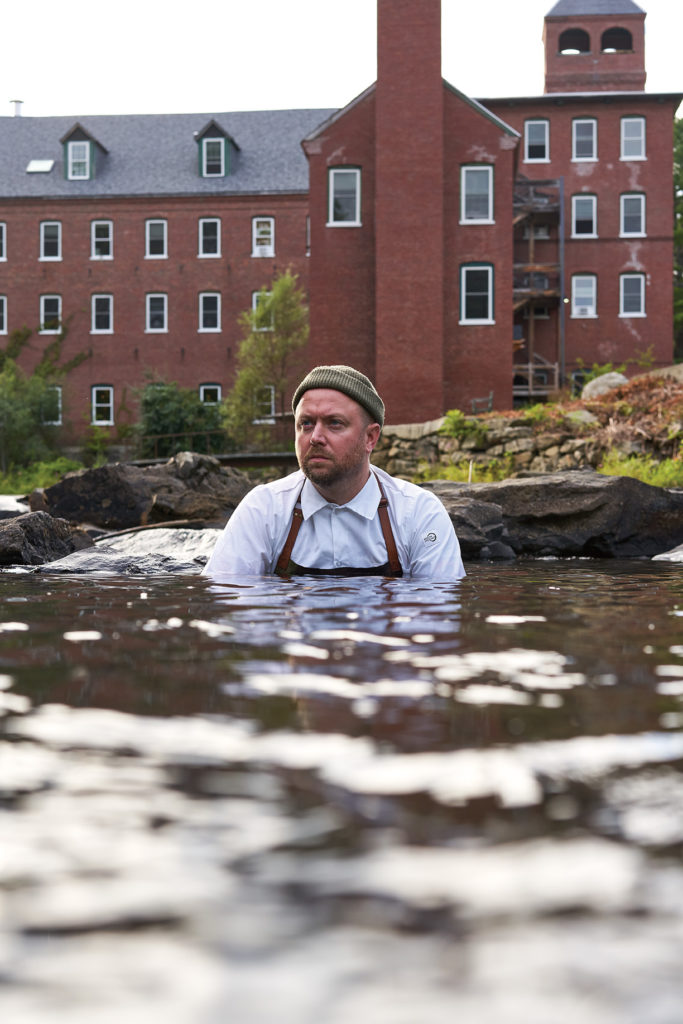
Christian Hayes
Co-Owner and Executive Chef at the Garrison, Thoroughfare, and Dandelion Catering Co.
Chef Christian Hayes is well known for a lot of reasons, least of which is his culinary talents, which he puts on display at his and his wife Christine Hayes’s intimate Yarmouth restaurant, the Garrison; their smash burgers and milkshake joint, Thoroughfare; and their catering business, Dandelion Catering Co. He and his daughters also deliver Thanksgiving feasts to families in need. But this year Hayes went outside the average chef’s comfort zone when he signed up to take part in the World Central Kitchen meal preparation site in Przemyśl, Poland, located just a few miles from the Ukraine border. Hayes and a team of chefs also volunteering in the relief kitchen helped cook 100,000 meals a day for thousands of Ukrainian refugees crossing the border. “Joining World Central Kitchen is something that will live within me forever,” says Hayes. “It’s tough to classify the feeling as pride, but more like a resounding appreciation for everyone involved, and the privilege to be able to be a useful set of hands for the effort.” Hayes initially refused media interviews during his overseas stint, not wanting to make the work about him, but he says it quickly became obvious to him that people were hungry for news, not just about the devastating side of things but also news about the helpers. “They wanted to hear about the good that people were doing, and if I could be a conduit to that and show that there are people working tirelessly with helping hands in the name of hope, then I should relay those stories to anyone willing to listen.” When representative Chellie Pingree came to visit the field kitchen and say hi to Hayes, he knew that the state of Maine was watching, listening, and caring. “It was overwhelming and humbling,” he says.
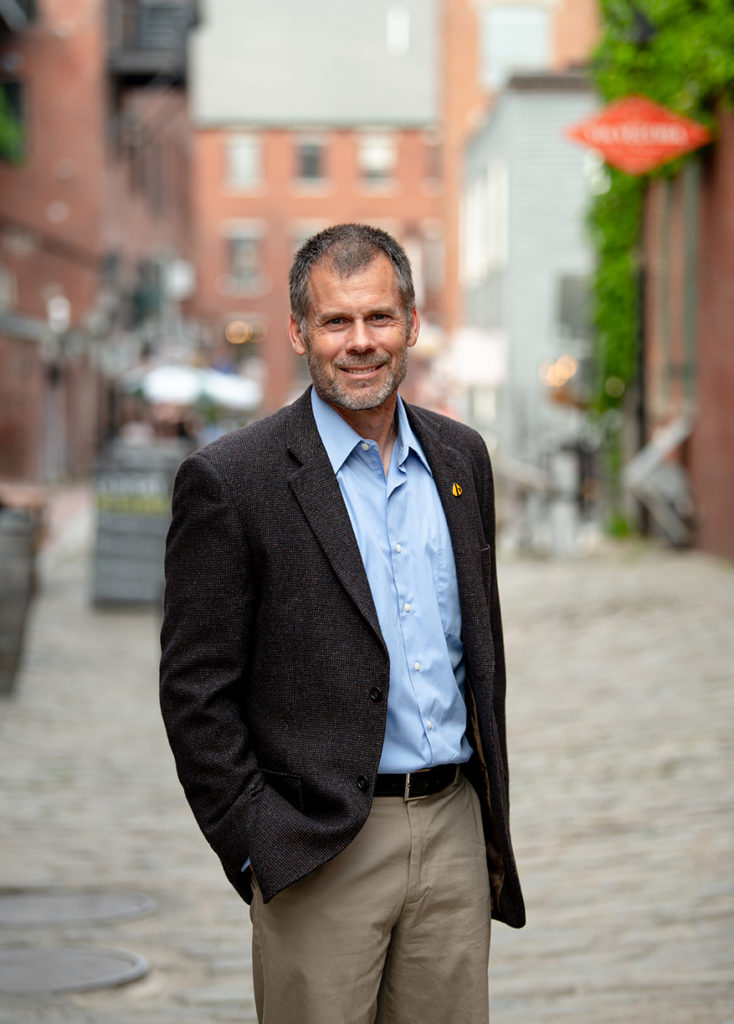
Bill Benson
Executive Director, Boots2Roots
Boots2Roots, which was founded by Airforce veteran and Maine native Dave Hickey in 2016, is the only organization in Maine working exclusively to prepare active duty military members and their families to live and work in the Pine Tree State. Bill Benson, who was the organization’s first paid employee, is now serving as its executive director. “As a 24-year Army veteran I understand the struggle it can be for veterans transitioning to civilian life,” says Benson. “And as a former Maine small business owner, I appreciate the value military talent brings to Maine employers and the urgent need Maine has for more workers.” Last year Boots2Roots assisted 41 military members and their families to transition to work-ing in Maine, and it is on track to enroll over 100 members by the end of this year. “Over 200,000 military members transition from active duty each year, and Boots2Roots is committed to attracting more of them to Maine,” says Benson, who notes that Maine is at a disadvantage for drawing military talent. “Principally, there is a lack of significant military installations,” he says, “but Maine also suffers from a reputation for limited economic opportunity and a more locally focused business community that can be difficult to penetrate. Boots2Roots is targeting military service members more than 12 months before they leave service, connecting them to outstanding Maine companies and making a positive impact on Maine’s workforce growth.” There is never a charge for Boots2Roots’ services. “We seek best outcomes for veterans and their families,” says Benson, “as well as for Maine employers and Maine’s workforce.”

Krystal Williams
Attorney
Krystal Williams is a business strategist and attorney who founded both Providentia Group, a Black-owned, woman-owned law firm in Portland, and Alpha Legal Foundation (ALF), a nonprofit that aims to bring more diversity to Maine’s legal profession. ALF started its work under a fiscal sponsorship arrangement with Maine Initiatives, and this year it received its tax-exempt status and was one of three recipients of the Maine Volunteers’ AmeriCorps planning grant. “The organization grew out of my desire for a professional community,” says Williams. “Nationally, approximately 14 percent of attorneys are people of color. We’ve only recently started to track that data in Maine, but anecdotally, I believe BIPOC representation among practicing attorneys is somewhere between 2 and 5 percent.” Also in the past year, Williams launched a virtual diversity training program through Providentia Group. “Our beta cohort participants really appreciated the safe and supportive space that I and my co-instructors created for them to practice key concepts and communication techniques,” says Williams, who has become a trusted resource for leaders and organizations ready to take on the important work of creating and sustaining more equitable workplaces. Her prior business experience and current work as an attorney allows her to provide nuanced guidance to executives that is both strategic and practical. “From an aspirational—or maybe inspirational—perspective,” Williams says, “Maine has a history to live up to.” In 1844 Maine had the distinction of being home to the first Black lawyer in the U.S., when Macon Bolling Allen passed the bar exam. “Despite the challenges of that time, challenges that in some ways continue,” Williams says, “Maine led the nation in integrating the legal profession, not for the sake of progressiveness but because it is the right thing to do.”
Community + Public Service
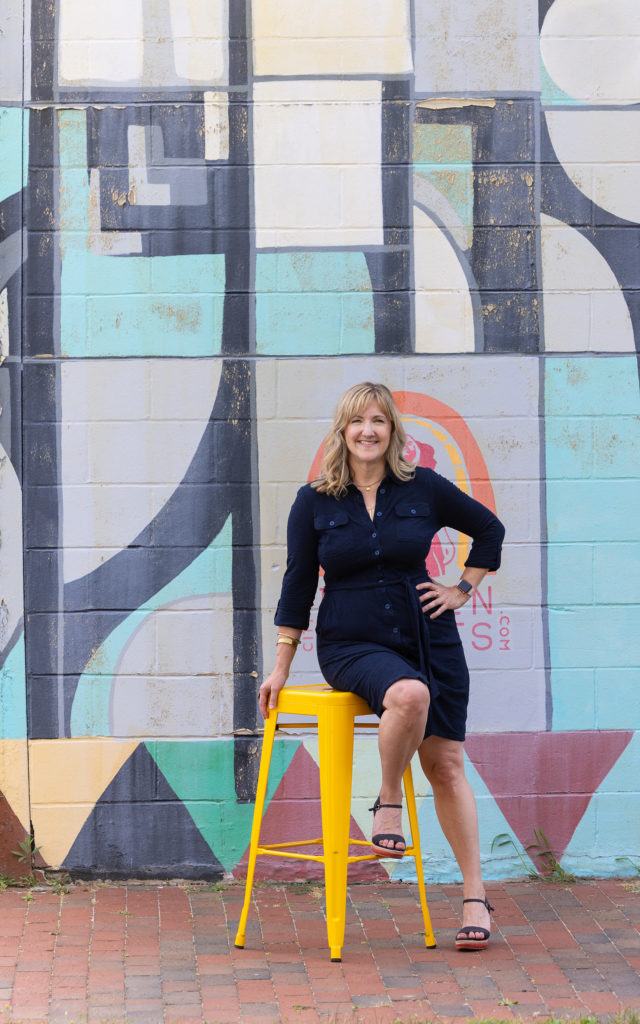
Justine Bassett
Director of Innovation and the P.D. Merrill Makerspace, University of New England
When Justine Bassett stepped into her role as the Director of Innovation and the P.D. Merrill Makerspace at the University of New England in the fall of 2020, she knew it was vitally important for college students to learn to think outside of the box. Bassett brought over two decades of experience teaching design thinking and finding innovative solutions to complex problems, which she immediately put into use to support UNE staff and students. Facing the challenges of shifting to online learning, Bassett encouraged students to be active changemakers in their communities, designing new solutions to a wide variety of problems, such as those posed by immigrant health needs and commercial fishing. “Many, many times, the students felt they had failed when they encountered obstacles or had to change their ideas,” says Bassett. “But this is where the real magic happened.” Over the past year, Bassett has seen over 1,000 touchpoints with students in the on-campus makerspace, and has worked with faculty to pilot podcasts, prototype projection maps, run design sessions, launch the first annual UNE Innovation Celebration (an event that showcases exemplary ingenuity in both undergraduate and graduate programs) and, with the support of philanthropist and entrepreneur David Shaw, pilot a student innovation fellows program. Bassett also helped to launch the university’s first Healthcare Story Slam, where healthcare professionals shared their stories about the toll that the pandemic has taken on them. Bassett, who thinks of herself as a professional optimist, says, “I want to inspire people to use the tools and techniques of innovation to make change right where they are, whether students or professionals in the field.”

Rebecca Hatfield
President and CEO, Avesta Housing
In June of this year Portland nonprofit Avesta Housing announced that Rebecca Hatfield, then the senior vice president of real estate, would be stepping into the role of president and CEO in September, following the retirement of Dana Totman, who had held the position for 22 years. With the housing crisis in Maine reaching levels previously unheard of prior to the COVID-19 pandemic, Hatfield’s immediate goals were to address the necessity of affordable housing in a collaborative and strategic manner. “The number of people coming to Avesta every day looking for a place to live has multiplied,” she says, “and the situations they’re facing while they wait for an apartment to become available are more dire than ever.” Over the past year, Hatfield’s team has built new, safe, affordable homes for 225 households that were adversely affected by the pandemic, and provided essential support for more than 4,600 people each day. In addition, to meet the needs of the tens of thousands of Mainers seeking affordable housing, Avesta grew its production substantially in a short amount of time, with the plans for 750 apartments in the pipeline as of this writing. Likewise, recognizing that low-income people and people of color have been disproportionately affected by the pandemic, Hatfield and her team partnered with social service agencies and philanthropic funders to increase the number of residential support services, which include healthcare, transportation, food access, financial stability, language acquisition, and job placement. Stepping into this role during the company’s 50th year is incredibly meaningful to Hatfield, who feels a deep responsibility to help those suffering from housing insecurity. “I will continue to work with partners and the broader community to identify solutions and ensure all Mainers have a safe, quality, and affordable place to call home,” she says.

Kristina M. J. Powell
Executive Director, The Telling Room
In April, Kristina M. J. Powell found herself dangling from the ceiling of a studio in the Telling Room—a Portland arts nonprofit focused on empowering youth through writing and storytelling—while being filmed for Show and Tell, the organization’s annual storytelling spectacular. “Never in my wildest dreams did I imagine that as part of my work I would be donning a climbing harness to be hoisted up,” says Powell, who became the executive director of the organization in late 2021. “But, in the name of empowering youth to fearlessly share their stories, that is where I found myself.” Powell, who has worked at numerous Maine-based nonprofits, including the Center for Grieving Children and the Office of Equity and Diversity at Bates College, has dedicated her life to building and supporting programs that create community and prepare youth to be curious and courageous leaders. Since taking over the Telling Room, Powell and the organization’s staff have made expanding accessibility a top priority. This has included leveraging grant funding to provide a lending library of laptops for online learning, working with Portland public schools to expand accessibility to summer programming for youth of all backgrounds, and, with the help of local restaurants, providing free lunches to students this summer. Powell and her team have worked to enhance the organization’s scope, reopening the studio for in person classes (in addition to traveling to schools around the state and offering online programming); publishing three anthologies of youth poetry, stories, and essays; and traveling across the state this summer to visit libraries, bookshops, and Telling Room authors. “I am dedicated to stewarding the Telling Room’s mission to empower youth through writing,” says Powell, “and to building a bright future for this beloved organization.”

Nicole Clegg
Senior Vice President of Public Affairs, Planned Parenthood of Northern New England
When the Supreme Court released its ruling in the case of Dobbs v. Jackson Women’s Health Organization in late June of this year, overturning abortion-rights precedents, Nicole Clegg, the senior vice president of public affairs at Planned Parenthood of Northern New England, was ready to fight. “We are doing all we can to make sure that abortion remains safe and legal in Maine and that people traveling to Maine can get the best care possible,” says Clegg. “The sad reality is that people living in states with abortion bans will need us more and more, and we have an obligation to meet that need, whether it’s through advocacy, elections, healthcare delivery, or clinician safety.” Over the past year and a half, Clegg has served as an interim co-CEO for the organization with two of her colleagues, during which time she has remained focused on protecting access to abortion and other sexual and reproductive health care, and discussing those issues with honesty, empathy, and compassion. “I would love for people to understand that these decisions come from a space of love: for oneself, for family, and for partners. Bringing that truth into the conversation is something I am very proud of. I see that having an impact long after someone else has taken the helm.” Looking to the future, Clegg is prepared to support patients and provide exceptional care, regardless of the situation. “The Dobbs decision will cause real harm to millions of Americans, and it is easy to get lost in despair,” says Clegg. “But I find hope in the community, and how we are coming together. The future is ours to make.”
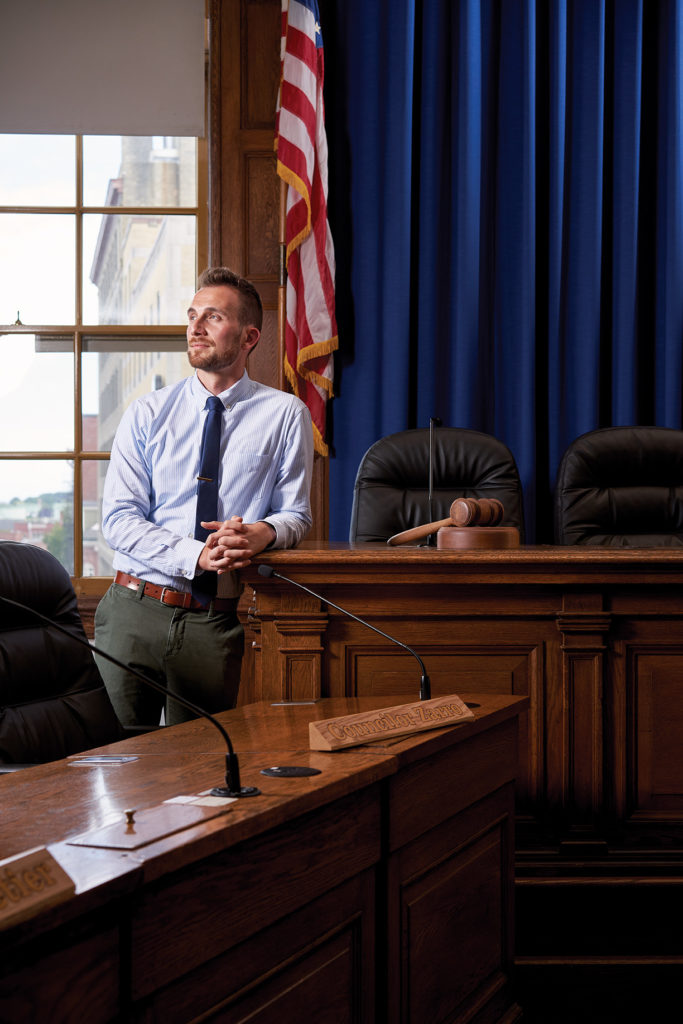
Andrew Zarro
Portland City Councilor
When Portland city councilor and small business owner Andrew Zarro initially ran for public office, his goal was to bring the Maine community back into the political conversation. “I want to help create safe spaces and policies that are for everyone,” says Zarro, “and to call people in rather than call them out.” Faced with implementing policies amid the ongoing pandemic, over the past year Zarro has approached each situation with these values in mind. In January of 2022, as the surge of the Omicron variant was bombarding the state, Zarro worked closely with Portland city staff and the community to sponsor Maine’s first municipal mask mandate. The mandate showed Portland’s ability to step into a leadership role as the largest city in the state—other municipalities quickly followed suit—and it, Zarro believes, helped to save many lives. “I was proud to sponsor the mandate, even though it resulted in painful retaliation from a minority of anti-mask extremists,” he says. During the holiday season, Zarro co-created and hosted pop-up COVID-19 vaccine clinics at his coffee shop, Little Woodfords, to help alleviate the bottleneck in vaccine availability. Moving forward, his top priority as a member of the local government is addressing and combating climate change. Serving as the chair of Portland’s Sustainability and Transportation Committee, Zarro has worked to expedite climate initiatives while also encouraging his colleagues and the community to view new policies through a lens focused on sustainability. “Portland is a breathtaking place, and I am honored to call it home,” says Zarro. “I view my role as a steward of this city, and I intend to make sure future generations know we did everything in our power to leave it better than we found it.”
Environment + Science

Finnian Donovan
Director of Operations, Running Tide
Recognizing that the declining health of the ocean impacts Maine’s industries, economy, and coastal communities, Running Tide, an aquaculture and biotechnology company based in Portland, was started with one guiding principle in mind: restoring our oceans. “Ocean health is not a simple thing to understand; it is an incredibly complex environment,” says Finnian Donovan, the organization’s director of operations. “One of the most exciting things about Running Tide, to me, is that we’ve been able to bring together a group of people who are all willing to go up against the complexities, austerity, and uncertainty the ocean environment presents in order to take on what we see as the biggest problem in the world.” Founded in 2010, Running Tide focuses on decarbonizing the ocean by using buoys made from forestry residue and limestone that are seeded with kelp. As the kelp grows and the limestone slowly dissolves, carbon is trapped in the buoy, which eventually sinks to the bottom of the ocean, where the carbon is either buried or eaten by marine life. Over the past year, Donovan and the Running Tide team, including maritime operators, scientists, veterans, engineers from SpaceX and NASA, welders, and agronomists, has been able to make incredible progress toward developing even more actionable solutions, thanks in large part to the company’s continued growth, which included adding 47 jobs. As Donovan says, Running Tide is quickly becoming a global leader in ocean health technology, marine ecosystem services, and carbon removal, due to the team’s collaborative approach to finding solutions. “In the last year we’ve made great strides in promoting ocean health and revitalizing Maine’s coastal communities,” says Donovan. “And we’re just getting started.”

Ellen Stern Griswold
Vice President and Deputy Director of Maine Farmland Trust
When the PFAS (per- and polyfluoroalkyl substances) crisis emerged in Maine last year and revealed that farmland and water across the state was contaminated by these “forever chemicals,” Ellen Stern Griswold immediately got to work. “It has been heart-wrenching to witness the discovery firsthand,” says Griswold, who serves as the vice president and deputy director of Maine Farmland Trust (MFT), “and to see farmers across the state forced to completely change their business—and in some cases stop farming altogether—while worrying about potential health effects for themselves and their families.” Partnering with the Maine Organic Farmers and Gardeners Association (MOFGA), Griswold and Maine Farmland Trust formed the PFAS Emergency Relief Fund, which helps participating farms to stay afloat while navigating the fallout from the discovery. Alongside farmers, legislators, and other agricultural and environmental organizations, Griswold and her team also helped to establish a $60 million state fund that not only addresses PFAS contamination on Maine farms but also provides critical services to impacted farmers, such as income replacement, health monitoring and coverage, relocation expenses, and business pivots. She also supported a bill to ban PFAS sludge and compost from being spread any further. “Every day we see the harm of losing farmland to development while farmers struggle to access the land they need for their operations,” says Griswold. “We shouldn’t add to those challenges and put Maine farmers and their families at risk by continuing to contaminate their land, their resources, and their products.” In addition to the critical work of addressing PFAS, since stepping into her role Griswold has worked to make MFT even more effective for participating farmers, ensuring their needs are at the core of the organization’s policy work and research. With a long road ahead to help farms post-PFAS, Griswold is focused on developing relationships with research institutions to establish research projects on soil remediation, exploring pathways to transfer highly contaminated farms to new ownership (releasing farmers from their obligations while looking into other potential uses of the land), and finding ways to help impacted farmers access new land.
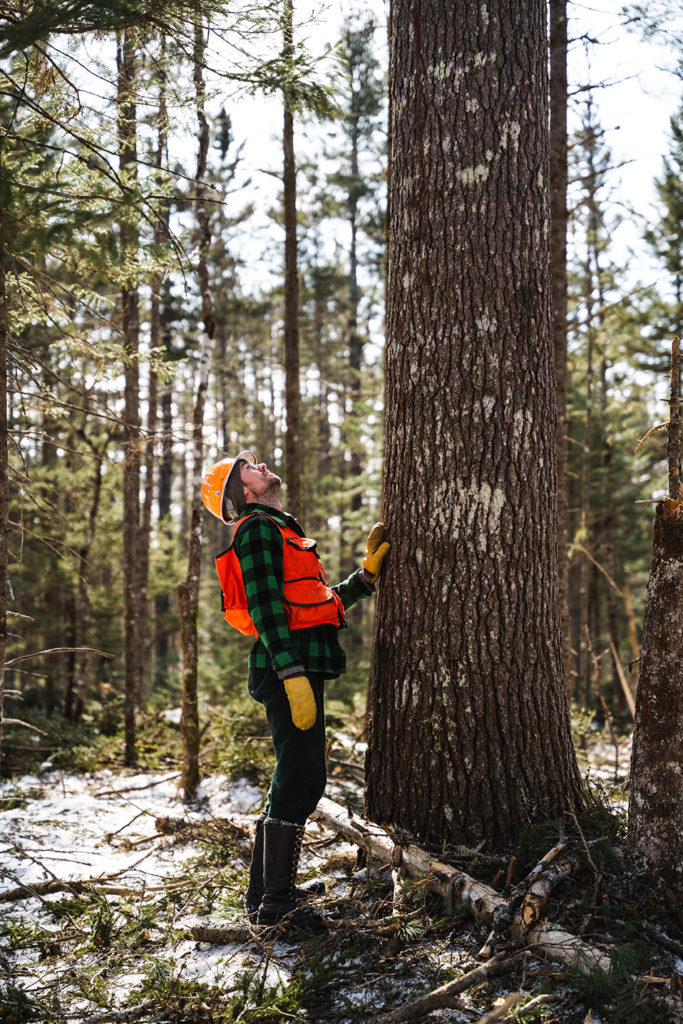
Steve Tatko
Senior Director of Maine Conservation and Land Management, Appalachian Mountain Club
As a native of Northern Maine and graduate of Colby College, where he was a captain of the school’s woodsmen team, Steve Tatko’s connection to the state’s Hundred-Mile Wilderness has shaped his career. In a video produced by Colby and published on Outside Magazine’s online outlets in September of 2021, Tatko discusses how his connection to the Maine woods from a young age, and fear of losing it, led him to dedicate his life to conserving it. “We find ourselves in the middle of an enormous crisis that we’ve put ourselves in—and that’s climate change,” Tatko says in the video.“ Central to our ability to adapt to climate change is the role of our forests.” Now serving as the senior director of Maine conservation and land management for the Appalachian Mountain Club (AMC), Tatko is “firmly committed to centering ecology and communities at the core of land management decisions, for the benefit of both.” In the past year, Tatko and his colleagues at AMC acquired the 27,000-acre Pleasant River Headwaters Forest, which increased the club’s Maine Woods Initiative lands to 100,000 contiguous acres, and helped to advance the state’s 30×30 goal (a national project aiming to conserve 30 percent of each state’s natural resources by 2030). Responsible forest management that is based in ecology and carbon sequestration is at the core of Tatko’s work, which earned him the Outstanding Management of Natural Resources award from Maine’s Northeastern Loggers Association this year. In addition, Tatko is dedicated to removing every barrier to passage for sea-run Atlantic salmon and eastern brook trout on AMC lands by 2028. This year alone, he and his team completed seven fish passage projects (raising the AMC’s total to 76), marking 82 miles of reopened spawning habitats since 2011. Moving forward, Tatko aims to continue working with partner organizations that advance understanding of landscape restoration and the importance of improved forest management, with the goal of eventually permanently conserving the Hundred-Mile Wilderness.

Amanda Stent
Director of the Davis Institute for Artificial Intelligence, Colby College
Amanda Stent, the inaugural director of the Davis Institute for Artificial Intelligence at Colby College, views the work that she has done over the past year as raising awareness, first and foremost. Through talks that the institute has hosted, an interview with Maine Voices Live, and forming relationships with Bigelow Labs, Dirigo Labs, the University of Maine, and the Roux Institute, getting the word out about AI across Maine has been an important first step. “AI really does affect everyone today, and we have a great opportunity as a state, through education, innovation, and policy making, to decide how we want to use and control its impact in Maine,” says Stent. In the year since the program launched, the Davis Institute was able to reach 18 percent of faculty and 15 percent of students at Colby (spanning all four college divisions and nearly 20 departments) through numerous courses and research. This included offering over 15 new courses with materials or methods focusing on AI in a wide variety of disciplines such as art, astrophysics, religious studies, and economics. In addition, with Stent at the helm, the Davis Institute supported research on deception detection, text mining, and image processing; organized six panels with distinguished speakers from the AI field; put on an international AI conference at Colby; and starting this fall, will host its first postdoctoral associate. With a mission of fostering interdisciplinary, human-centered AI teaching and scholarships, during the fall term the Davis Institute will focus on the theme “AI and the lived environment.” Plans include a data/hackathon, and AI research that will model the browntail moth infestation in Maine. For the 2022/2023 academic year, Stent is excited to continue the institute’s growth, including working to put on an AI-generated art contest, expanding educational AI programs, and, she hopes, offering a pre-college AI program for Maine high schoolers next summer.

Gregory Porter
Professor of Agronomy, School of Food and Agriculture at the University of Maine, Orono
In July of this year Dr. Gregory Porter, who has been a professor of agronomy at the University of Maine at Orono for 38 years, received an Honorary Life Membership from the Potato Association of America (PAA), of which he has been a member since 1981. The Honorary Life Membership, the highest honor that the PAA awards, recognizes individuals who have made exceptional contributions to the potato industry. Indeed, talking to Porter reveals his passion for developing new varieties of potatoes that are not only delicious and marketable but also resilient to stresses caused by climate change and evolving pest factors. “My research program is developing high-quality new potato varieties that are helping to solve difficult production problems that are faced by our growers at all scales of production,” says Porter. “This includes new varieties that have resistance to late blight, plant viruses, and other plant pathogens that increase costs and result in production losses for growers.” This year in particular, the Caribou Russet, which Porter and his research program developed and licensed to the Maine Potato Board for commercialization, has achieved large-scale commercial success. Developed for both fresh and fry-processing markets, the Caribou Russet allows Maine growers to be more competitive and has contributed to expanded production in Maine and other states that fall within the northern tier of the country. Pinto Gold—one of his most popular varieties marked by what Porter calls “an attractive and unusual red and gold skin pattern,”—continues to remain a popular and tasty option among home growers and farmers who produce potatoes for roadside stands, farmers’ markets, and gourmet restaurants. In his continued research, Porter and his team have implemented new technologies into the potato breeding program, including using DNA marking to detect disease resistant genes and also genomic selection that improves the efficiency of the process. With a target date of retirement in December of 2023, Dr. Porter may be winding down his prolific career, but he plans to continue leading his research program and developing stress-tolerant varieties of potatoes that will allow Maine potato farmers to successfully produce crops each year, regardless of the changing climate.
READ MORE:
- Mainers of the Year 2022

- A Wyeth Muse, 30 Years Later

- Emma Tiedemann Shines as the New Play-By-Play Announcer of the Portland Sea Dogs

- Portland’s Most Inclusive Cocktail Bar

- The Ghost of Paul Revere Takes One Final Tour


